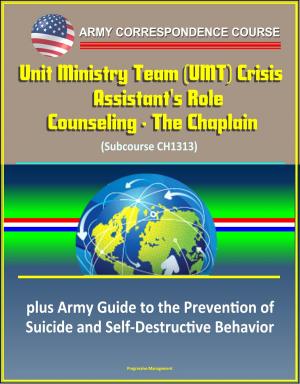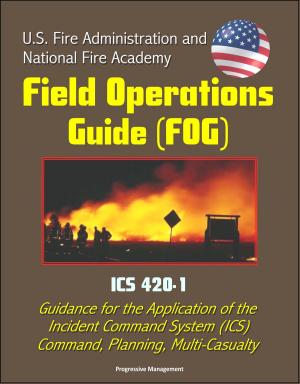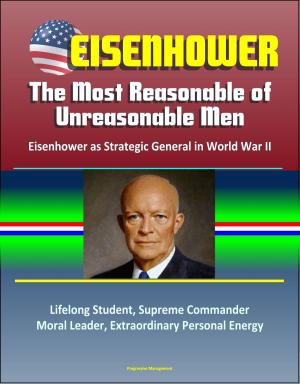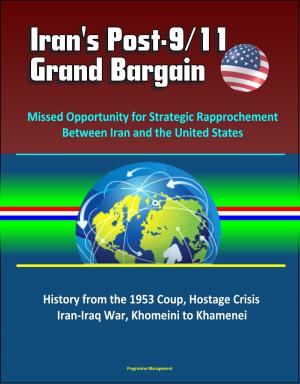Ukraine Reports: The U.S. Military Commission to the Crimean War, 1855-1856 - History, Russia, European Armies
Nonfiction, History, Asian, Former Soviet Republics, Russia| Author: | Progressive Management | ISBN: | 9781311390851 |
| Publisher: | Progressive Management | Publication: | March 2, 2014 |
| Imprint: | Smashwords Edition | Language: | English |
| Author: | Progressive Management |
| ISBN: | 9781311390851 |
| Publisher: | Progressive Management |
| Publication: | March 2, 2014 |
| Imprint: | Smashwords Edition |
| Language: | English |
This study examines the U.S. Military Commission sent by the Secretary of War to observe the Crimean War 1n 1855 and 1856, to determine why the commission was sent, where it went, and the results achieved by the commissions efforts. A survey of the literature on the U.S. Involvement In the Crimean War In general, and the Military Commission specifically, Indicates that little has been written on either. It is shown that while the official policy of the United States was strict neutrality, many private citizens involved themselves in the conflict. The nation was able to use the conflict to realize one of Its age-old goals: recognition of the rights of neutrals on the seas. The U.S. Military Commission was the only official involvement in the conflict. In a time of rapid national expansion and minimum military manpower resources, the three-man commission was sent to study the art of war as it was being practiced in Europe. It was to study the "new" technology in fortifications, and armaments, and the organization of European armies to see if there might be some application to improve the effectiveness and capability of the U.S. Army in defending the vast new territory. Although extensive reports were written by the commission, little was incorporated until well into the Civil War.
One episode that is seldom studied in American history that provides an example of this opportunistic process is that which encompasses the activities of the United States during the prosecution of the Crimean War by the great powers of Europe. The purpose of this work is to study that episode in official and unofficial American foreign relations, and more specifically, to study the work of the United States Military Commission sent to observe the Crimean War in 1855.
The Crimean War was one of a long series of events that fell under the generic description of the "Eastern Question". The Eastern Question can best be introduced by a statement attributed to one of the ministers of Catherine the Great, Empress of Russia (1762-1797): "That which stops growing beings to rot." The defeat of the Osman-ali or Ottoman Turks at the gates of Vienna in 1683 brought the growth of the Ottoman Empire to a halt and began the decline that would last for over two-hundred years. For almost two-and-a-half centuries the Turks, pushed westward by the Mongol conquests of the thirteenth-century, had been the scourge of Christiandom and had seriously threatened the security of Europe. Now as the years passed and the empire began to weaken and "rot", the question became: Who will inherit the estate of Europe's "Sick Man"? From about 1702 until about 1820, it appeared that Russia would be the heir.
This study examines the U.S. Military Commission sent by the Secretary of War to observe the Crimean War 1n 1855 and 1856, to determine why the commission was sent, where it went, and the results achieved by the commissions efforts. A survey of the literature on the U.S. Involvement In the Crimean War In general, and the Military Commission specifically, Indicates that little has been written on either. It is shown that while the official policy of the United States was strict neutrality, many private citizens involved themselves in the conflict. The nation was able to use the conflict to realize one of Its age-old goals: recognition of the rights of neutrals on the seas. The U.S. Military Commission was the only official involvement in the conflict. In a time of rapid national expansion and minimum military manpower resources, the three-man commission was sent to study the art of war as it was being practiced in Europe. It was to study the "new" technology in fortifications, and armaments, and the organization of European armies to see if there might be some application to improve the effectiveness and capability of the U.S. Army in defending the vast new territory. Although extensive reports were written by the commission, little was incorporated until well into the Civil War.
One episode that is seldom studied in American history that provides an example of this opportunistic process is that which encompasses the activities of the United States during the prosecution of the Crimean War by the great powers of Europe. The purpose of this work is to study that episode in official and unofficial American foreign relations, and more specifically, to study the work of the United States Military Commission sent to observe the Crimean War in 1855.
The Crimean War was one of a long series of events that fell under the generic description of the "Eastern Question". The Eastern Question can best be introduced by a statement attributed to one of the ministers of Catherine the Great, Empress of Russia (1762-1797): "That which stops growing beings to rot." The defeat of the Osman-ali or Ottoman Turks at the gates of Vienna in 1683 brought the growth of the Ottoman Empire to a halt and began the decline that would last for over two-hundred years. For almost two-and-a-half centuries the Turks, pushed westward by the Mongol conquests of the thirteenth-century, had been the scourge of Christiandom and had seriously threatened the security of Europe. Now as the years passed and the empire began to weaken and "rot", the question became: Who will inherit the estate of Europe's "Sick Man"? From about 1702 until about 1820, it appeared that Russia would be the heir.















